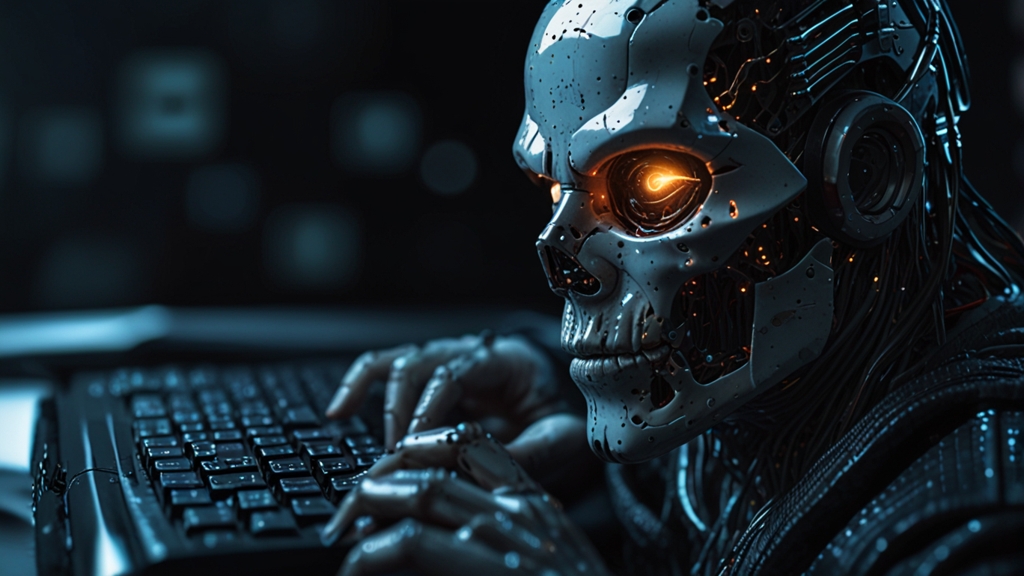Behind the Algorithms: The Minds that Power AI Innovations
In today’s digitally-driven world, artificial intelligence (AI) has transitioned from a futuristic concept to a tangible part of everyday life. From smart assistants like Siri and Alexa to advanced predictive models in healthcare, AI’s capabilities are becoming increasingly pervasive. Yet, behind these impressive technological feats are not just complex algorithms, but also the brilliant minds that conceive and develop these innovations.
The Pioneers of AI
The history of AI is adorned with remarkable individuals whose groundbreaking work has paved the way for modern advancements. Alan Turing, often hailed as the father of computer science, laid the theoretical groundwork with his concept of the Turing Machine. In the mid-20th century, Turing introduced the idea that machines could simulate any human intelligence process, setting the stage for AI development.
Then there’s John McCarthy, who coined the term "artificial intelligence" in 1956. McCarthy’s vision and commitment to AI research led to the development of the Lisp programming language, which became a staple for AI researchers. His contributions continue to influence AI to this day.
The Engineers and Data Scientists
While pioneering figures set the stage, it’s the tireless work of countless engineers and data scientists that drives AI forward today. These professionals blend expertise in computer science, mathematics, and domain-specific knowledge to create sophisticated algorithms. Engineers focus on the architectural aspects, writing the code and ensuring the systems are efficient, robust, and scalable.
Data scientists play an equally critical role. They process vast amounts of data, identifying patterns and insights that inform AI models. By using statistical techniques and machine learning, they develop models that can predict outcomes, automate decisions, and even generate new ideas.
“AI development is a team effort requiring diverse expertise, from theoretical foundations to practical implementations. The synergy between these areas drives real innovation.” – Dr. Jane Smith, AI Researcher
Collaborative Innovation
AI innovations rarely come from isolated efforts. They often arise from collaborative environments where interdisciplinary teams bring together different perspectives and expertise. Tech giants like Google, Microsoft, and IBM have dedicated research labs where computer scientists, mathematicians, neuroscientists, and domain experts work together to push the boundaries of what AI can achieve.
Academic institutions also play a vital role. Universities like Stanford, MIT, and Carnegie Mellon offer specialized programs and research opportunities in AI. Through collaboration with industry partners, they create a pipeline of talent that continuously fuels AI advancements.
Ethical Considerations
As AI technology becomes more embedded in society, ethical considerations are paramount. Researchers and developers are increasingly focused on ensuring that AI systems are fair, transparent, and free from bias. Ethical AI development involves interdisciplinary collaboration, often including ethicists, sociologists, and policy experts who help navigate the complex moral landscape.
“The future of AI depends not only on technical mastery but also on our ability to develop systems that are ethical and beneficial to all members of society.” – Dr. Alan Thompson, AI Ethicist
The Future of AI Innovation
Looking forward, the potential for AI seems limitless. Emerging fields like quantum computing and advanced robotics promise to unlock new capabilities. However, the trajectory of AI advancement will always hinge on human ingenuity. The passionate, curious, and dedicated minds behind these innovations will continue to challenge the status quo and push the frontiers of what AI can accomplish.
As we marvel at the AI technologies that transform our lives, let’s not forget the brilliant individuals who make these advancements possible. Their relentless pursuit of knowledge and innovation not only powers AI but also defines the future of technology itself.










